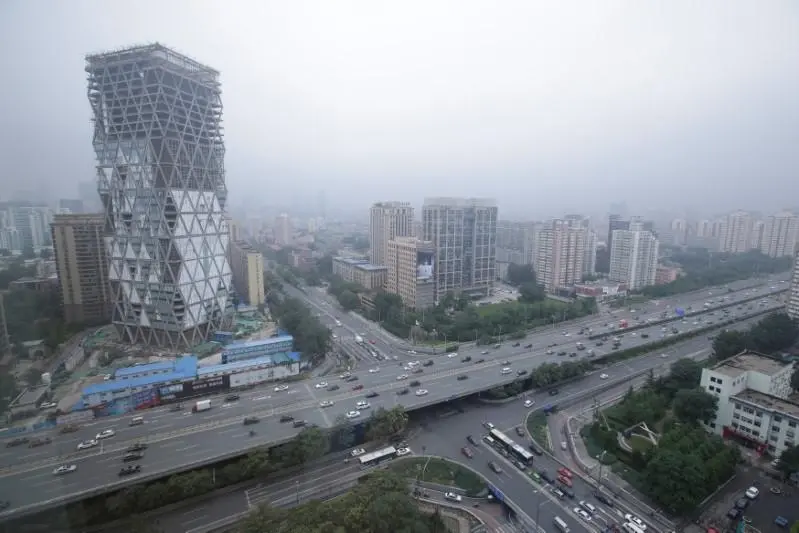PHOTO
BEIJING - China's property investment posted its weakest growth in six months in Juneas developers faced fresh curbs and tighter funding conditions, with sales also slowing, in a sign one of the economy's key drivers was losing steam.
Growth in real estate investment, which mainly focuses on residential but also includes commercial and office space, cooled to 8.4 percent in June year-on-year, compared with a 9.8 percent rise in May, according to Reuters calculations based on data from the National Bureau of Statistics (NBS) released on Monday.
While analysts say the pace of investment remains robust, it was nonetheless the slowest pace ofgrowth since December 2017.
"Developers have accelerated sales which has cushioned a sharper drop in real estateinvestment," said Yang Yewei, a Beijing-based analyst at Southwest Securities.
"But as credit continues to tighten and monetary policy support for shantytown redevelopment has weakened, demand for home purchases will further decline," he said.
China's housing ministry said last week it would restrict subsidies to cities with hot property markets for new projects to tear down and redevelop shantytowns, which had led to a buying frenzy, especially in smaller cities.
Developers also face a tougher funding environment as China looks to rein in excessive debt financing overseas and a de-risking campaign significantly raises funding costs onshore.
In a sign property developers may be tempering their enthusiasm slightly, new construction starts measured by floor area rose 15 percent in June from a year earlier, slowing from 20.5 percent in May, Reuters calculations showed.
Growth in the world's second-largest economy is at risk of losing momentum as authorities try to tame rapid domestic credit growth at a time when a full-blown trade war with the United States could hurt the economic outlook.
Economic growth slowed as expected in the second quarter as the government's efforts to tackle debt risks crimp activity and an intensifying trade war threatens to knock exports.
"Looking forward, I really don't think the Chinese government will tighten the real estate too aggressively. The Chinese economy is facing a very tough time ahead as we do believe (U.S. President Donald) Trump will escalate the trade war further," said Iris Pang, Greater China Economist at ING in Hong Kong.
Chinese authorities have sought to defuse a housing bubble since 2016, as part of a broader effort to temper financial risks stemming from years of debt build-up. But policymakers have also been careful not to trigger a sudden crash.
Last month, major government entities initiated a fresh crackdown on property irregularities in 30 major cities, as new home prices posted their fastest growth in nearly a year in May.
Property sales by floor area rose 4.5 percent in June from a year ago, down from an 8 percent gain in May, Reuters calculations based on NBS data showed.
Despite the cooling investment growth in June, existing housing shortages could provide some support for the sector in the second half of the year as developers converted their land stock into units.
Unsold existing properties, measured by floor area, were down 14.7 percent by end-Junecompared with a year earlier while land purchases measured by floor area were up 7.2 percent in the first half compared to a year earlier.
NBS spokesman Mao Shengyong told reporters at a briefing on Monday that property investmentis expected to maintain "relatively fast growth" in the second half as land purchases increased.
The chief financial officer of a Guangzhou-based developer, who did not want to be named, expects higher sales volumes and new starts in the second half of the year, as the company sets more ambitious targets.
"Property sales are still quite resilient, and developers are incentivised to fill up fast-depleting inventories," said Yan Yuejin, research director at E-House China R&D Institute.
(Reporting by Yawen Chen, Clare Jim and Kevin Yao; Additional Reporting by Lusha Zhang; Editing by Sam Holmes)
© Reuters News 2018





















